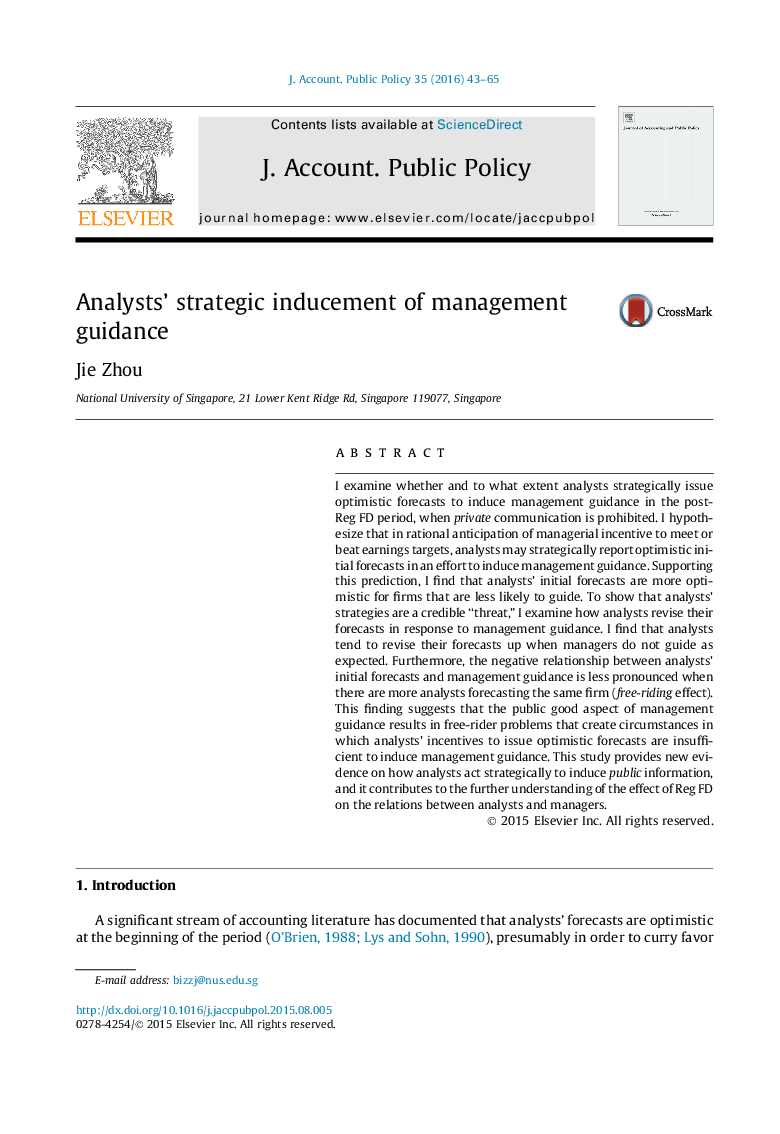| Article ID | Journal | Published Year | Pages | File Type |
|---|---|---|---|---|
| 1005738 | Journal of Accounting and Public Policy | 2016 | 23 Pages |
I examine whether and to what extent analysts strategically issue optimistic forecasts to induce management guidance in the post-Reg FD period, when private communication is prohibited. I hypothesize that in rational anticipation of managerial incentive to meet or beat earnings targets, analysts may strategically report optimistic initial forecasts in an effort to induce management guidance. Supporting this prediction, I find that analysts’ initial forecasts are more optimistic for firms that are less likely to guide. To show that analysts’ strategies are a credible “threat,” I examine how analysts revise their forecasts in response to management guidance. I find that analysts tend to revise their forecasts up when managers do not guide as expected. Furthermore, the negative relationship between analysts’ initial forecasts and management guidance is less pronounced when there are more analysts forecasting the same firm (free-riding effect). This finding suggests that the public good aspect of management guidance results in free-rider problems that create circumstances in which analysts’ incentives to issue optimistic forecasts are insufficient to induce management guidance. This study provides new evidence on how analysts act strategically to induce public information, and it contributes to the further understanding of the effect of Reg FD on the relations between analysts and managers.
